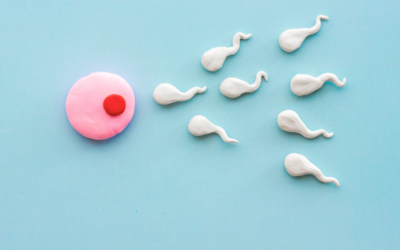You’ve made it to 9 Weeks Pregnant—can you believe it? Time seems to crawl and fly all at once during pregnancy. Right now, you might be dealing with morning sickness, exhaustion, and emotional ups and downs. It’s normal. Every woman feels something different during this stage, but one thing is certain: at 9 Weeks Pregnant, your baby is undergoing remarkable changes. Your little one is no longer just a tiny cluster of cells; they’re starting to look more like a real human baby. How exciting is that?
At 9 Weeks Pregnant, your body is working overtime to support this rapid growth. You might not be showing much yet, but there’s a whole world of development happening inside your womb. From facial features forming to tiny muscles developing, this week marks an incredible milestone.
In this blog post, you’ll learn exactly what’s happening to your baby and your body at 9 Weeks Pregnant. We’ll explore the common symptoms, the emotional rollercoaster, and tips to help you manage it all with confidence. If you’re wondering what’s normal and what’s not at this stage, keep reading—you’ll find answers here.
Table of Contents
What is 9 Weeks Pregnant?
Being 9 Weeks Pregnant means you’re now in the third month of your pregnancy. Your baby has grown from a little embryo into a fetus, and the development is astonishing. Although your baby is only about the size of a grape, they already have tiny arms, legs, fingers, and toes forming.
At 9 Weeks Pregnant, your baby’s heart is beating stronger than ever, and facial features like eyes, nose, and mouth are starting to take shape. Inside, vital organs are developing, and the baby’s body is straightening out.
This week is crucial because many of your baby’s foundations for future growth are being set. Even though you might not see or feel much from the outside, big things are happening on the inside. 9 Weeks Pregnant is a time filled with change, hope, and a few challenges—but knowing what’s happening can help you feel more connected and prepared.

Why Nutrition is Important at 9 Weeks Pregnant
At 9 weeks pregnant, your baby is transitioning from embryo to fetus. Key developments include:
- Formation of the heart valves
- Development of fingers, toes, and tiny muscles
- Rapid brain development
- Formation of facial features
You need essential nutrients to support these changes, including folic acid, iron, calcium, protein, and omega-3 fatty acids.
Daily Nutritional Goals at 9 Weeks Pregnant
Key Nutrients You Must Prioritize
- Folic Acid – Prevents neural tube defects
- Iron – Supports blood volume increase and oxygen transport
- Calcium – Strengthens your baby’s bones and teeth
- Protein – Builds tissues and muscles
- Omega-3 Fatty Acids (DHA) – Supports brain and eye development
- Fiber – Prevents constipation, which is common at 9 weeks pregnant
- Hydration – Helps with amniotic fluid production and digestion
Sample Foods to Eat at 9 Weeks Pregnant
Fruits (Rich in Vitamins & Fiber)
- Oranges (Vitamin C, Folate)
- Bananas (Potassium, Energy)
- Berries (Antioxidants, Fiber)
- Apples (Fiber, Hydration)
- Kiwi (Vitamin C, Fiber)
Vegetables (Packed with Nutrients)
- Spinach (Iron, Folate)
- Kale (Calcium, Fiber)
- Sweet Potatoes (Beta-carotene, Fiber)
- Carrots (Vitamin A)
- Broccoli (Calcium, Folate)

Whole Grains (Energy & Fiber Source)
- Brown Rice
- Oats
- Quinoa
- Whole Wheat Bread
- Barley
Protein Sources (Essential for Baby’s Growth)
- Eggs (Choline, Protein)
- Chicken (Lean Protein)
- Fish (Omega-3, choose low mercury like salmon)
- Lentils (Iron, Protein)
- Chickpeas (Folate, Protein)
Dairy or Alternatives (Calcium & Vitamin D)
- Milk
- Greek Yogurt
- Cheese (moderate amounts)
- Fortified Plant-Based Milks (Almond, Soy with calcium)
Healthy Fats (Brain Development & Energy)
- Avocados (Healthy fats, Fiber)
- Nuts (Omega-3, Protein)
- Seeds (Chia, Flaxseeds for fiber and omega-3)
- Olive Oil (Healthy fats)
Hydration
- Water (8-10 glasses daily)
- Coconut water (Electrolytes)
- Fresh fruit-infused water
- Herbal teas (ensure pregnancy-safe)
Sample 1-Day Meal Plan at 9 Weeks Pregnant
Breakfast
- Whole grain toast with avocado
- 1 boiled egg
- Fresh orange juice (vitamin C for iron absorption)
Mid-Morning Snack
- A handful of almonds
- 1 banana
Lunch
- Grilled chicken salad with spinach, kale, and colorful veggies
- Quinoa on the side
- Glass of water
Afternoon Snack
- Greek yogurt with berries and a drizzle of honey
Dinner
- Baked salmon with sweet potatoes and steamed broccoli
- Brown rice or barley
- Glass of water
Evening Snack
- A small bowl of mixed fruits
- Herbal tea like chamomile (confirm it’s pregnancy-safe)
Foods to Avoid at 9 Weeks Pregnant
While focusing on what to eat at 9 weeks pregnant, also keep these avoidances in mind:
- Raw or undercooked eggs
- Unpasteurized dairy products
- High mercury fish (shark, swordfish)
- Raw or undercooked meats
- Deli meats (unless reheated properly)
- Unwashed fruits and vegetables
- Excessive caffeine (limit to 200 mg daily)
- Alcohol
- Processed junk foods (high in sugar, salt, and unhealthy fats)
Tips for Eating Well at 9 Weeks Pregnant
1. Combat Morning Sickness
- Eat small, frequent meals
- Choose bland, easy-to-digest foods like crackers, toast, or bananas
- Ginger tea or ginger biscuits can ease nausea
2. Manage Constipation
- Increase fiber from fruits, vegetables, and whole grains
- Stay well-hydrated
- Incorporate light physical activity like walking
3. Handle Food Aversions
- Don’t force foods that make you feel sick
- Substitute with alternatives offering similar nutrients
Common Cravings at 9 Weeks Pregnant and How to Handle Them
Cravings are normal at 9 weeks pregnant. Listen to your body, but aim for healthier choices:
- Sweet cravings? Try fruits or yogurt.
- Salty cravings? Opt for lightly salted nuts or whole-grain crackers.
- Sour cravings? Citrus fruits like oranges or kiwi can help.

Important Supplements at 9 Weeks Pregnant
Besides whole foods, supplements play a key role:
- Prenatal vitamins (with folic acid, iron, calcium, DHA)
- Vitamin D if your doctor recommends extra
- Omega-3 DHA capsules if not consuming enough through food
Always consult your doctor before starting new supplements.
Common Mistakes to Avoid at 9 Weeks Pregnant
- Skipping meals due to nausea
- Drinking too little water
- Overeating “eating for two” myth
- Ignoring protein intake
- Consuming too much sugar or fast food
Baby Development at 9 Weeks Pregnant
At 9 weeks pregnant, your baby is growing quickly and entering a crucial phase of development. Though still tiny, your baby’s organs, muscles, and essential bodily systems are forming at a remarkable pace. This is an exciting time because your baby is officially no longer called an embryo — from this week forward, your little one is now recognized as a fetus.
Understanding what’s happening inside your womb during this stage will help you feel more connected to your pregnancy and more aware of your baby’s incredible journey of growth.

How Big is Your Baby at 9 Weeks Pregnant?
At 9 weeks pregnant, your baby is about the size of a grape or a cherry.
- Length: Around 0.9 inches (2.3 cm)
- Weight: Approximately 0.07 ounces (2 grams)
Even though your baby is still tiny, so much development is happening every single day.
Key Baby Developments at 9 Weeks Pregnant
1. Formation of Major Organs
Your baby’s internal organs, including the heart, lungs, liver, and kidneys, are developing rapidly. Although these organs won’t fully function until later, their structures are now clearly forming.
2. Facial Features Are Becoming Clearer
At 9 weeks pregnant, your baby’s:
- Eyes are fully formed but remain shut.
- Eyelids are starting to cover the eyes.
- Ears are taking shape, moving closer to their final position.
- The nose is becoming more distinct.
- Mouth and lips are more pronounced.
3. Arms and Legs are Growing Stronger
Your baby’s arms and legs are lengthening, and tiny joints like elbows, wrists, knees, and ankles are becoming visible. Little fingers and toes are forming, though they might still look webbed.
4. Heartbeat is Strong and Detectable
By 9 weeks pregnant, your baby’s heartbeat is now beating between 140-170 times per minute, nearly twice as fast as yours. This heartbeat can often be detected via a doppler device during prenatal appointments.
5. Muscle Movements Begin
Tiny muscle fibers are developing, allowing the fetus to make small, spontaneous movements. You won’t feel these yet, but your baby is already practicing stretching and flexing.
Baby’s Development Summary at 9 Weeks Pregnant
| Development Area | What’s Happening |
|---|---|
| Size | About the size of a grape or cherry |
| Weight | ~2 grams |
| Organs | 140-170 bpm, detectable by Doppler |
| Heartbeat | First, spontaneous tiny movements |
| Facial Features | Eyes, ears, and nose are more defined |
| Limbs | Arms and legs lengthening, joints forming |
| Nervous System | Brain growing rapidly |
| Movement | First, spontaneous, tiny movements |
| Bones | Major organs are forming rapidly |

Causes of Changes at 9 Weeks Pregnant
The changes you’re experiencing at 9 Weeks Pregnant are driven by a cocktail of powerful pregnancy hormones. Human Chorionic Gonadotropin (hCG) is likely responsible for many of your symptoms, such as nausea and fatigue. Your body is also producing extra estrogen and progesterone to support your growing baby and prepare your uterus.
Blood volume is increasing to meet your body’s new demands, which might leave you feeling dizzy or lightheaded. Metabolism shifts are happening too, often causing fluctuations in hunger, energy, and mood.
Social and emotional factors also play a role. Being 9 Weeks Pregnant often comes with excitement, anxiety, and even fear. All of these feelings are normal as you adjust to the reality of growing a human life. Your symptoms are a natural part of this process, signaling that your body is doing exactly what it needs to do to nurture your baby through this important stage.
Benefits of Knowing What’s Happening at 9 Weeks Pregnant
Understanding what’s happening at 9 Weeks Pregnant offers multiple benefits, both emotional and practical. When you know what to expect, you’re better equipped to handle the changes with confidence.
Here’s why staying informed matters:
- Emotional Preparedness: Knowing what’s typical at 9 Weeks Pregnant can help ease unnecessary worry.
- Physical Awareness: Recognizing common symptoms helps you understand your body’s signals.
- Better Communication with Healthcare Providers: Informed questions lead to more productive prenatal visits.
- Early Bonding with Baby: Learning about your baby’s development helps strengthen the emotional connection.
- Mental Health Benefits: Reduces anxiety and empowers you to make healthy choices.
Specific Benefits to Your Wellbeing:
- Physical Health: Helps you understand when to rest, hydrate, and nourish your body.
- Emotional Health: Reassures you that mood swings and fatigue are temporary and part of the journey.
- Mental Clarity: Keeps you focused on your health and your baby’s development.
At 9 Weeks Pregnant, knowledge truly is power. It helps you embrace this incredible time with positivity and resilience, knowing each symptom and change is part of the beautiful process of bringing new life into the world.
Impact of 9 Weeks Pregnancy on Daily Life
At 9 Weeks Pregnant, your daily life may feel like a balancing act. You might wake up feeling nauseous, struggle through waves of exhaustion, and crave odd foods—all while trying to keep up with work, family, and social commitments.
Common Daily Impacts:
- Energy Levels: Fatigue is one of the biggest challenges at 9 Weeks Pregnant. Simple tasks might feel overwhelming.
- Diet and Appetite: Morning sickness or food aversions can make mealtimes tricky.
- Emotions: Hormones can make you feel weepy, irritable, or overjoyed—sometimes all in one hour.
- Sleep: Disrupted sleep is common, whether from frequent bathroom trips or vivid dreams.
Relationships and Social Life:
- Some women withdraw socially due to exhaustion or mood swings at 9 Weeks Pregnant.
- Sharing your news might lead to both excitement and unsolicited advice.
Work and Productivity:
- Concentration may suffer.
- You might need more breaks throughout the day.
Recognizing these impacts helps you adjust expectations and give yourself grace during this phase. At 9 Weeks Pregnant, self-care isn’t selfish—it’s essential.
How to Manage 9 Weeks Pregnant with Ease
Navigating life at 9 Weeks Pregnant doesn’t have to feel overwhelming. Small, practical adjustments can make a big difference.
Actionable Tips for This Stage:
- Prioritize Rest: Listen to your body. Rest when you can; even short naps help.
- Stay Hydrated: Dehydration can worsen symptoms like headaches and fatigue.
- Eat Small, Frequent Meals: Helps manage nausea and keeps energy steady.
- Move Gently: Light walks or prenatal yoga can boost energy and mood.
- Manage Stress: Meditation, deep breathing, and journaling work wonders.
- Prep for Doctor Visits: Keep a symptom journal to share with your healthcare provider.
- Communicate Needs: Be honest with loved ones about how they can support you.
Helpful Resources:
- Pregnancy apps for tracking the baby’s growth.
- Support groups or online communities.
- Reliable books on pregnancy health.
Common Myths or Mistakes at 9 Weeks Pregnant
Myth: Morning sickness only happens in the morning.
Reality: It can strike at any time of day.
Myth: You should eat for two.
Reality: Nutrition matters, but doubling your calories isn’t necessary.
Myth: Miscarriage symptoms are always obvious.
Reality: Not all warning signs are dramatic. Regular checkups are key.
Common Mistakes:
- Ignoring hydration and nutrition.
- Pushing through extreme fatigue instead of resting.
- Comparing your pregnancy to others’.
Clearing up these myths can help you approach 9 Weeks Pregnant with realistic expectations and avoid unnecessary stress.
Conclusion
Reaching 9 Weeks Pregnant is a remarkable milestone in your journey to motherhood. Even though your belly might not show it yet, incredible things are happening inside. Your baby is transforming from a tiny cluster of cells into a recognizable little human with features you’ll soon fall in love with.
During this stage, it’s vital to honor your body’s needs—rest, hydration, and proper nutrition are your best allies. While symptoms like nausea, fatigue, and emotional swings might make this time challenging, they are all signs that your body is working hard to nurture new life.
Remember, you’re not alone in this journey. Countless women have navigated 9 Weeks Pregnant with similar questions, feelings, and triumphs. Embrace this phase with confidence and curiosity. Take care of yourself, and trust the process.
If this guide on being 9 Weeks Pregnant has helped you, please share it with other moms-to-be. Leave a comment below about your own experiences or questions, and don’t forget to subscribe for more pregnancy tips and updates!
FAQ
1. How does your stomach feel at 9 weeks pregnant?
At 9 weeks pregnant, your stomach may feel bloated, tight, and slightly uncomfortable. Hormonal changes slow down digestion, leading to bloating and gas. Mild cramping similar to period pain is common. You won’t have a visible baby bump yet, but you may notice your clothes feel tighter due to bloating.
2. How to know if something is wrong at 9 weeks pregnant?
Signs something might be wrong at 9 weeks pregnant include heavy bleeding (not just light spotting), severe abdominal pain, intense cramps on one side, severe back pain, sudden loss of pregnancy symptoms, fever, chills, or foul-smelling discharge. Always contact your doctor if you experience these symptoms.
3. Can I feel the baby at 9 weeks pregnant?
No, you cannot feel the baby at 9 weeks pregnant. Your baby is still very small, and although they are moving, those movements are too gentle for you to notice. Most women feel baby movements between 16 to 22 weeks.
4. Does a 9 week fetus have a heartbeat?
Yes, at 9 weeks pregnant, the baby’s heartbeat is typically strong and fast, around 140-170 beats per minute. This heartbeat can often be heard during a prenatal ultrasound or with a doppler device.
5. In which week is baby gender developed?
The baby’s gender is determined at conception, but the external sex organs start to develop around 11 to 14 weeks. Usually, the gender can be accurately seen on an ultrasound around 18-20 weeks.
6. How do I know my baby is ok at 9 weeks pregnant?
Signs your baby is healthy at 9 weeks pregnant include continued pregnancy symptoms (nausea, breast tenderness, fatigue), no heavy bleeding, no severe pain, and a strong heartbeat confirmed during scans. Regular checkups help ensure everything is progressing normally.
7. What are bad signs in early pregnancy?
Warning signs include heavy bleeding, severe cramping, sharp abdominal pain, dizziness, fainting, severe headaches, sudden loss of pregnancy symptoms, swelling of the hands or face, painful urination, and high fever. Contact your doctor if you experience these.
8. Where do you touch to feel early pregnancy?
At 9 weeks pregnant, you won’t be able to feel your baby by touching your stomach. The uterus is still deep inside your pelvis. By 12-14 weeks, the uterus starts to rise above the pelvic bone and might be felt externally by touch. Early pregnancy symptoms are more about how you feel internally, not what you can physically touch.







